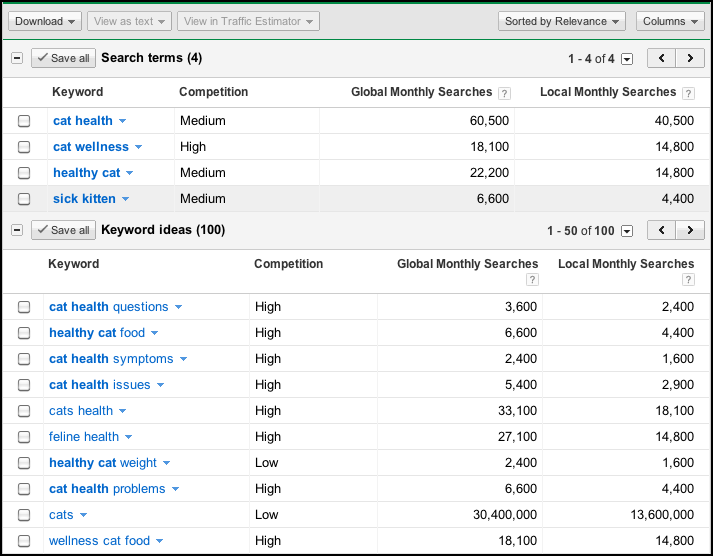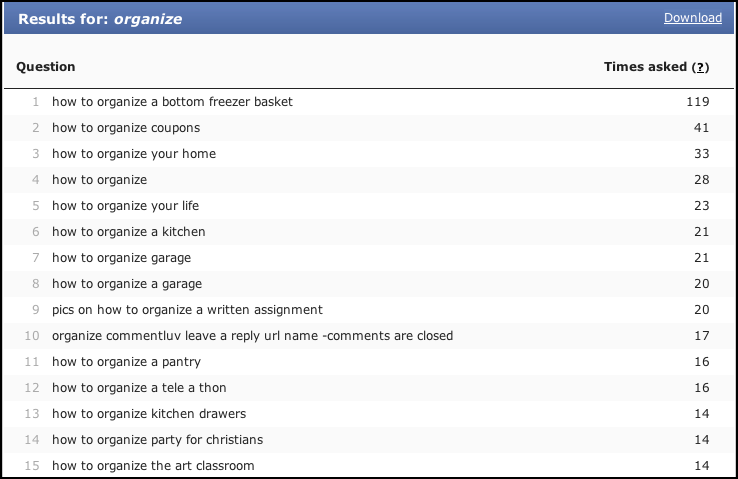How to Reach Prospects With Your Small Business Blog
The reason I have a blog for my small business—besides loving the sound of my own “voice”—is because it's a great tool for attracting flyte's ideal customer.
Who is our ideal customer? Generally small business owners and the marketers who work for them. They're looking for advice and how-tos on increasing their online visibility and lead generation through SEO, social media, and more recently, mobile marketing. So that's what we strive to provide them on our web marketing blog.
While your audience may be completely different—soccer moms, physicians, or professional contortionists—they still use the web to seek answers. (If they don't you can stop reading here.) When they turn to Google for help with their most vexing problem, your blog post might be the first result they see if it addresses their problem.
So, how do you know what their biggest problem is?
If you already have an established business, you probably already know many of the big issues your ideal customer struggles with, because it's the same problem you helped your current customers overcome.
Start there. Create how-to's and “Dear Abby” style posts that solve and answer these questions, whether it's “how do I get my teen to listen to me?” or “what kind of portable projector should I buy?”
If you're not sure what your ideal customer is struggling with, or you want to dig deeper, consider surveying your current customer list. Sending out a quick survey (quick being the operative word here) through SurveyMonkey or Google Docs (here's a great how-to for sending out free surveys using Google Docs) will uncover some topics and keywords you might not have considered.
What if you don't have a customer list or your own experience to pull from?
One tool I regularly use is the Google Adwords Keyword Tool. You can plug in your keywords–words you feel your ideal customer is using when they search for your services–and Google will provide you feedback on your keyword phrases and related ones.
Google will tell you how many times each phrase is searched for in the past month, as well as how competitive the pay-per-click bidding is. (This will often give you an indication of how competitive the organic search results are as well.)
Here's an example I generated that might be for someone running a pet health blog.
In looking down the list I'm going to ignore “cat” and “cats,” because even though they're extremely popular, they're too broad to rank well for.
However, a few other jump out at me: “best cat food,” “cat worms,” “vomiting cat” and “cat grooming.” (Probably required right after “vomiting cat.”) These are good keywords to target with my blog based on the search volume (customer interest) and my area of expertise.
Once I know some of the keywords I should be using to attract my ideal customer, I use some other tools to uncover even more topics.
Google Insights
Google Insights generates some incredibly rich reports, but I always skip right down to the bottom of the page and look for top searches and rising searches. Here I see what the most popular and emerging search terms are. Emerging terms are great because anecdotally I've discovered that if I blog about a subject early on, I get lots of people linking to that post and I rank well for that phrase for a long time to come.
Here's an example for someone who might be running a healthy eating or gluten-free blog.
Keyword Questions
Since your ideal customers are likely to phrase their problem in question form, you should create blog posts to answer these questions. The closer you match their question, the more likely you are to rank well when they searches for it.
Here I turn to Keyword Questions, a powerful tool from WordTracker that displays the most popular questions from its partner search engines. (Note: Neither Google nor Bing is a partner, so these numbers reflect only a FRACTION of the real numbers…which in this case is great news!)
I've found that you want to use as broad a term as possible here to generate great blog topics. Here are some great blog posts ideas for a professional organizer.
Once you know what you should be blogging about, you'll want to make sure you put your keywords in the title, header, body copy, meta-description and some links to either other blog posts or pages on your site.
You can drive even more traffic to your post by posting links to it from your social media profiles and other online presences. Just be aware that over-promoting yourself in social media can backfire, so try and keep it to less than 10% of your updates.
Finally, I recommend you set up some Google Alerts on your keywords. This will deliver a steady diet of related news stories, blog posts and even tweets on your topic.You can use these articles for inspiration, or as part of a blogger outreach program to let other bloggers know about (and hopefully share) your content.
Takeaways
Your blog can be a powerful lead generation tool for your business, but only if you're using it in the right way.
By creating posts that rank well and solve the biggest problems your ideal customer is struggling with, you'll attract a steady stream of leads and business.
If you need help developing a blog that attracts your customer base, please contact flyte today!



